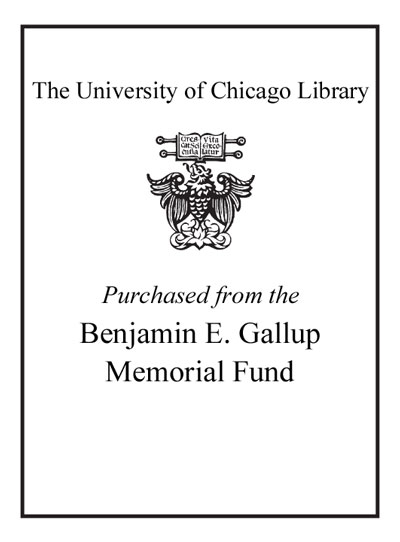Review by Choice Review
In this useful, informative account of the civil rights movement in Chicago in the 1960s, McKersie (emer., management, MIT), who is white and was both a participant and academic researcher at the time, shares his perspective as a member of the Unitarian Church. He describes the emergence of local grassroots organizations such as The Woodlawn Organization and the Coordinating Council of Community Organizations, and the role of national organizations such as the Congress of Racial Equality. McKersie describes Dr. King's 1966 open housing campaign in Chicago with the Southern Christian Leadership Conference. In the course of rallies and demonstrations to bring about greater school integration in 1965, Dick Gregory led numerous marches to the home of Mayor Richard Daley. McKersie chronicles the role of A. Philip Randolph's Negro American Labor Council, and efforts to unionize workers at a local hospital and break down patterns of racial exclusion at the Washburne Vocational School. The author also discusses the growth of Operation Breadbasket and its evolution into Jesse Jackson's Rainbow Coalition-Operation People United to Save Humanity (Rainbow-PUSH). An excellent companion to Confronting the Color Line by Alan Anderson and George Pickering (2008). Summing Up: Highly recommended. All levels/libraries. W. Glasker Rutgers, The State University of New Jersey, Camden
Copyright American Library Association, used with permission.
Review by Kirkus Book Review
A veteran academic recalls his involvement in the meetings, demonstrations and civil unrest at the dawn of his career at the University of Chicago. McKersie (Business, Emeritus/MIT Sloan School of Management) and his wife moved to Hyde Park in 1959, where he very quickly became involved in human rights issues, initially through his church. Even at the time, he knew he was caught up in something significant, so he began the files and the journal that inform this mixture of memoir, social history and academic analysis. The author focuses on a handful of issues--employment, education, housing and minority businesses--but he also highlights some significant personalities, including notables Martin Luther King Jr. and Jesse Jackson (with some glimpses of Dick Gregory) and also those not as well-known outside the city and the times: Al Pitcher, Tim Black and Alex Poinsett. He offers a tribute to each of them near the end. The author notes continually his various frustrations and anxieties ("I shuddered at the thought of being arrested," he writes)--and, in one violent march, his fears. He recognized--even at the time--the tension between the black and white leaders. He noticed the virtual absence of women among the leadership. He often wondered about the tactics employed, especially the many marches to the home of Mayor Daly and the focus on removing from office Superintendent of Education Benjamin Willis--an effort that proved futile. McKersie maintains a refreshing tone of self-deprecation, too, noting on one occasion his "small, weak voice" at a meeting. The best, most engaging parts are his personal memories--sitting on lawns, marching in the streets, worrying and wishing. He appends some useful maps and a timeline. Invaluable for scholars of the era, though many readers will yearn for more of the author's warm, human voice.]] Copyright Kirkus Reviews, used with permission.
Copyright (c) Kirkus Reviews, used with permission.
Review by Choice Review
Review by Kirkus Book Review

